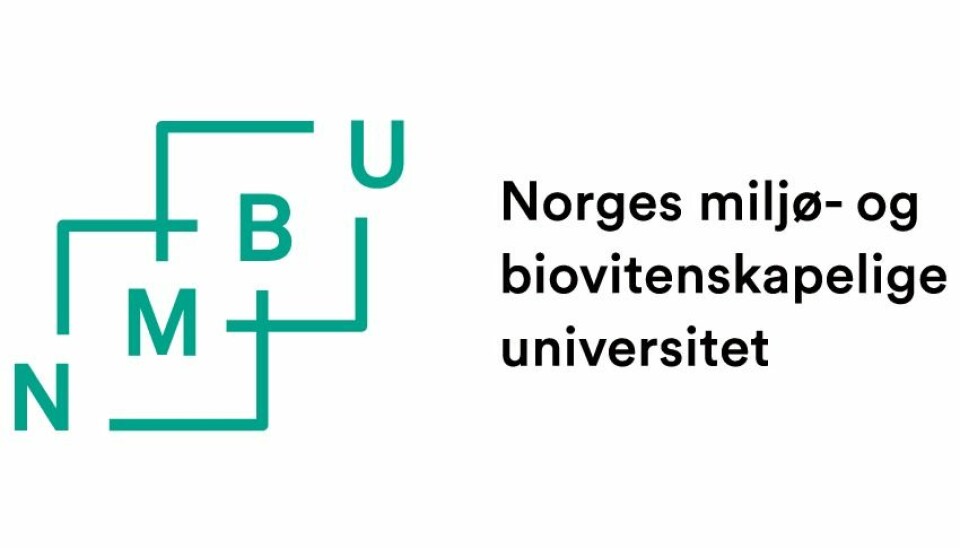Ledig stilling ved NMBU
PhD scholarship within pathophysiology
Deadline: 01.06.2019
About the position
The Department of Basic Sciences and Aquatic Medicine, Faculty of Veterinary Medicine at the Norwegian University of Life Sciences (NMBU) has a vacant 3-year PhD–position in the field of pathophysiology.
Canine viper envenomation and novel biomarkers of kidney injury

The aim of the PhD-project is to identify new sensitive markers for kidney injuries in dogs, in order to enable early diagnosis of such injuries, and thus improve treatment outcome.
Venom of the Common European Viper is known to cause mild kidney injury. Possible markers of kidney injury will be identified in urine from dogs envenomated by vipers.
Both immuno-fluorescence based techniques and metabolomics will be used. The PhD-project is supported by the department and has collaborators at an external veterinary clinic and at Oslo University Hospital.
Main tasks
- Plan and implement collection of blood and urine from dogs envenomated by the European viper as well as from healthy controls.
- Perform laboratory work using conventional methods such as multiplex immunoassays and/or ELISA.
- Involvement in the metabolomic work, and subsequent data analysis.
- Synthesize results and present them orally and in writing
The successful candidate is expected to enter a plan for the progress of the work towards a PhD degree during the first months of the appointment, with a view to completing a doctorate within the PhD scholarship period.
Acdemic Qualifications
The successful applicant must meet the conditions defined for admission to a PhD programme at NMBU. The applicant must have a documented strong academic background from previous studies, and be able to document proficiency in both written and oral English. For more detailed information on the admission criteria please see the PhD Regulations and the relevant PhD programme description.
The applicant must document expertise and interest in the research subject.
Required Academic qualifications
- Veterinary degree with good results and authorisation to practice veterinary medicine in Norway
- Proficiency in both oral and written English
- Research interest in basic sciences
Relevant experience is favourable, however, graduates with a high motivation for research are also encouraged to apply.
Desired Academic qualifications
- Research experience including laboratory work
- Clinical experience
- Oral skills in a Scandinavian language
Required personal skills
- Good communication and collaboration skills.
- Ability to work systematically and independently
- High work capacity and ability to see tasks through to completion
Personal suitability will be emphasized.
Desired personal skills
- Will to take initiative
- Solution-orientated attitude
Remuneration and information
The position is placed in government pay scale position code 1017 PhD. Fellow, wage framework 20 (salary grade 36-62). PhD. Fellows are normally placed in pay grade 51 (NOK 443.900,-) on the Norwegian Government salary scale upon employment and follow ordinary meriting regulations.
Employment is conducted according to national guidelines for University and Technical College PhD scholars.
For further information, please contact:
- Associate Professor Karin Zimmer, E-mail: karin.zimmer@nmbu.no; phone +47 67232038
Information for PhD applicants and general Information to applicants
Application
To apply online for this vacancy, please click on the 'Apply for this job' button above. This will route you to the University's Web Recruitment System, where you will need to register an account (if you have not already) and log in before completing the online application form.
Application deadline: 01.06.2019
Applications should include (electronically) a letter of intent, curriculum vitae, publication list, if any, copies of degree certificates and transcripts of academic records (all certified), and a list of two persons who may act as references (with phone numbers and e-mail addresses). Publications should be included electronically within the application deadline. The relevant NMBU Department may require further documentation, e.g. proof of English proficiency.
Printed material, which cannot be sent electronically, should be sent by surface mail to Norwegian University of Life Sciences, Department of Basic Sciences and Aquatic Medicine, P.O. Box 5003, NO-1432 Ås, within 01.06.2019. Please quote reference number 19/02216.
If it is difficult to judge the applicant’s contribution for publications with multiple authors, a short description of the applicant’s contribution must be included.






